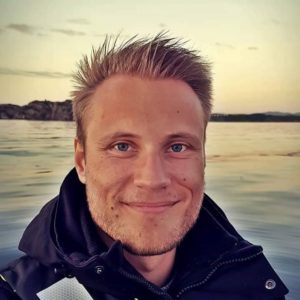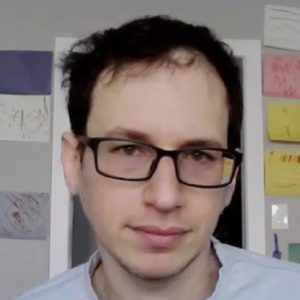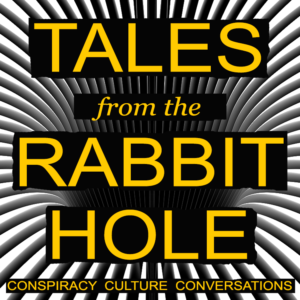 Mia Bloom is Professor of Communication at Georgia State University with a PhD in political science from Columbia University. Sophia Moskalenko is a research fellow at Georgia State University and a researcher at the National Consortium for the Study of Terrorism and Responses to Terrorism. Together they wrote the book Pastels and Pedophiles – Inside the Mind of QAnon.
Mia Bloom is Professor of Communication at Georgia State University with a PhD in political science from Columbia University. Sophia Moskalenko is a research fellow at Georgia State University and a researcher at the National Consortium for the Study of Terrorism and Responses to Terrorism. Together they wrote the book Pastels and Pedophiles – Inside the Mind of QAnon.
We discuss how the book came about, the historic roots of the QAnon conspiracy theory, how QAnon has changed with the “Save the Children” narrative to attract more women, and what tangible steps can be taken to help individuals and to help improve the overall situation.
Podcast: Play in new window | Download
Subscribe: Apple Podcasts | Spotify | iHeartRadio | Email | TuneIn | RSS | More
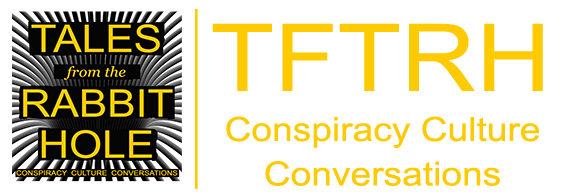
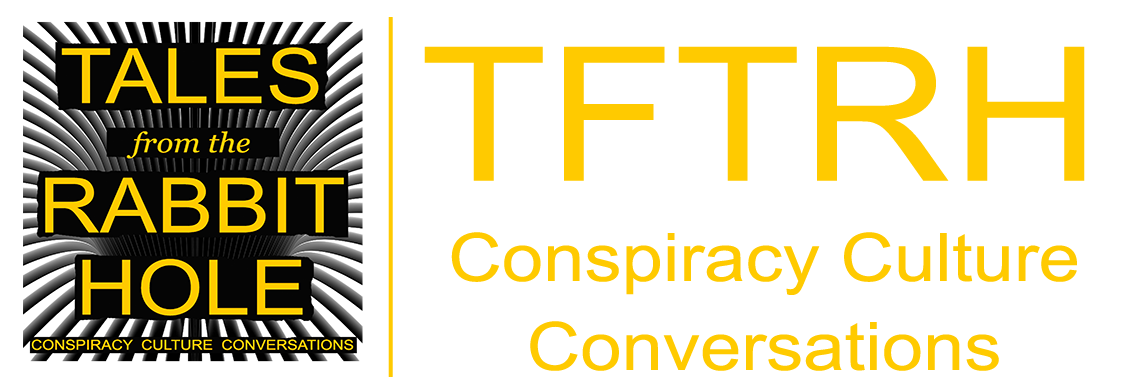
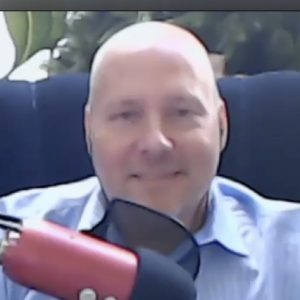 Anthony Magnabosco is the most well-known practitioner of the craft of “Street Epistemology”, which he defines as: “a dialog where you use questions to explore somebody’s claim to see how they concluded that it’s true.” While commonly associated with atheism (the term comes from the book “A Manual for Creating Atheists” by Peter Boghossian) Street Epistemology can be used to explore any kind of belief. There’s actually quite a bit of crossover with how to talk to conspiracy theorists.
Anthony Magnabosco is the most well-known practitioner of the craft of “Street Epistemology”, which he defines as: “a dialog where you use questions to explore somebody’s claim to see how they concluded that it’s true.” While commonly associated with atheism (the term comes from the book “A Manual for Creating Atheists” by Peter Boghossian) Street Epistemology can be used to explore any kind of belief. There’s actually quite a bit of crossover with how to talk to conspiracy theorists.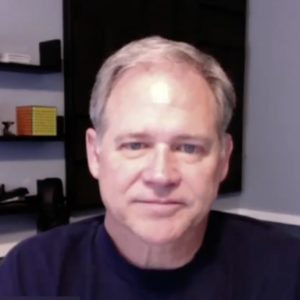 Brian Dunning is a prolific skeptical podcaster with his award-winning show “Skeptoid” coming up on its 700th episode. He’s also a writer, with his most recent book Conspiracies Declassified: The Skeptoid Guide to the Truth Behind the Theories, explaining the facts behind 50 different conspiracy theories. He’s also a documentary producer, currently working on Science Friction, a documentary about scientists who get misrepresented by the media. We discuss all these topics and more.
Brian Dunning is a prolific skeptical podcaster with his award-winning show “Skeptoid” coming up on its 700th episode. He’s also a writer, with his most recent book Conspiracies Declassified: The Skeptoid Guide to the Truth Behind the Theories, explaining the facts behind 50 different conspiracy theories. He’s also a documentary producer, currently working on Science Friction, a documentary about scientists who get misrepresented by the media. We discuss all these topics and more.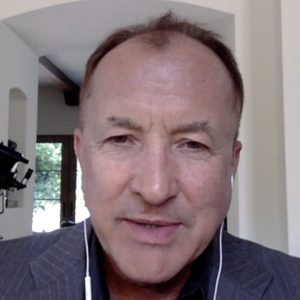 Dr Michael Shermer is founder of The Skeptics Society, and editor-in-chief of its magazine Skeptic. He’s written several books on science and skepticism and his latest work is an audio-only 12-part course, for Audible and The Great Courses, called Conspiracies & Conspiracy Theories: What We Should and Shouldn’t Believe—and Why. We cover the full spectrum of conspiracies, their history and context, their social and psychological causes and their very real effects. We discuss real and false conspiracies, and how to tell the difference. We then finish up with UFOs, the Intellectual Dark Web, and the Skeptical Movement.
Dr Michael Shermer is founder of The Skeptics Society, and editor-in-chief of its magazine Skeptic. He’s written several books on science and skepticism and his latest work is an audio-only 12-part course, for Audible and The Great Courses, called Conspiracies & Conspiracy Theories: What We Should and Shouldn’t Believe—and Why. We cover the full spectrum of conspiracies, their history and context, their social and psychological causes and their very real effects. We discuss real and false conspiracies, and how to tell the difference. We then finish up with UFOs, the Intellectual Dark Web, and the Skeptical Movement.
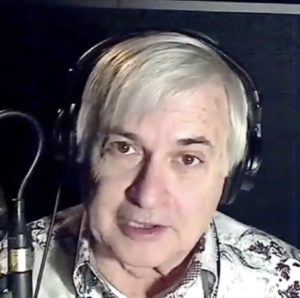 Seth Shostak is the Senior Astronomer for the SETI Institute and former Director of Center for SETI Research. A popular science communicator, Seth has hosted SETI’s weekly radio show (and now podcast) Big Picture Science since 2002. We discuss the work of SETI, and some of the more interesting developments. We also talk about the UFO “Disclosure” conspiracy theory, which suggests the US government is covering up evidence of extraterrestrial encounters and is (perhaps) on the verge of disclosing this information. We also discuss the related cultural phenomenon, Storm Area 51.
Seth Shostak is the Senior Astronomer for the SETI Institute and former Director of Center for SETI Research. A popular science communicator, Seth has hosted SETI’s weekly radio show (and now podcast) Big Picture Science since 2002. We discuss the work of SETI, and some of the more interesting developments. We also talk about the UFO “Disclosure” conspiracy theory, which suggests the US government is covering up evidence of extraterrestrial encounters and is (perhaps) on the verge of disclosing this information. We also discuss the related cultural phenomenon, Storm Area 51.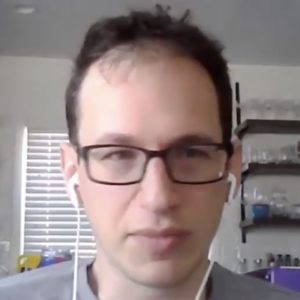 Mike Rothschild is a writer who is an expert on a variety of conspiracy theories, in particular QAnon. We discuss the drawn-out decline of the QAnon theory, prosperity scams, and the theories around the death of the Jeffery Epstein. We also discuss Mikes upcoming book,
Mike Rothschild is a writer who is an expert on a variety of conspiracy theories, in particular QAnon. We discuss the drawn-out decline of the QAnon theory, prosperity scams, and the theories around the death of the Jeffery Epstein. We also discuss Mikes upcoming book, 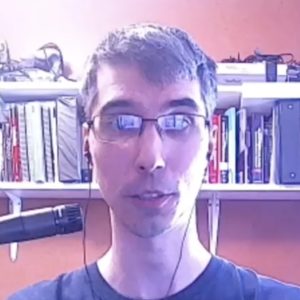 Brad is an electrical engineer and an expert in mathematics. He also likes to consider that an idea might be true before rejecting it, no matter how extreme. This led him very briefly down the rabbit hole of checking to see if the earth was actually round like a ball, or might it possibly be flat. His strong grounding in mathematics very quickly put an end to that – but what about the people who don’t really understand the math? Is there hope for “flat earthers” who don’t really understand geometry?
Brad is an electrical engineer and an expert in mathematics. He also likes to consider that an idea might be true before rejecting it, no matter how extreme. This led him very briefly down the rabbit hole of checking to see if the earth was actually round like a ball, or might it possibly be flat. His strong grounding in mathematics very quickly put an end to that – but what about the people who don’t really understand the math? Is there hope for “flat earthers” who don’t really understand geometry?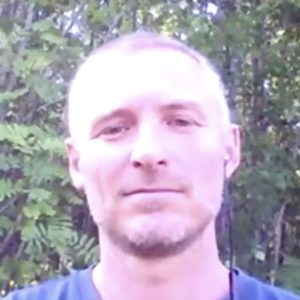 Rory has an extensive series of videos on YouTube debunking Flat Earth, focusing on simple ways of demonstrating that there’s a curve. But he’s also got a very interesting life story as a traveler, both around the world and in a spiritual sense. This exploration has eventually given him a great perspective on why people believe in things when the evidence is against them, but at times led him to entertain a number of conspiracy theories and other esoteric beliefs. He’s still a little esoteric, but as he’s got older he’s become a bit more grounded. We talk about his journey from “bliss ninny” to “pain-in-the ass debunker”
Rory has an extensive series of videos on YouTube debunking Flat Earth, focusing on simple ways of demonstrating that there’s a curve. But he’s also got a very interesting life story as a traveler, both around the world and in a spiritual sense. This exploration has eventually given him a great perspective on why people believe in things when the evidence is against them, but at times led him to entertain a number of conspiracy theories and other esoteric beliefs. He’s still a little esoteric, but as he’s got older he’s become a bit more grounded. We talk about his journey from “bliss ninny” to “pain-in-the ass debunker”
